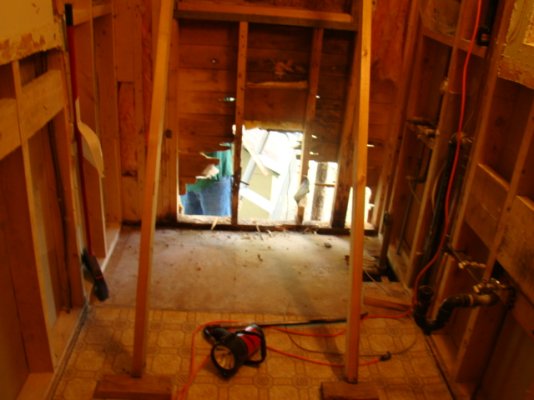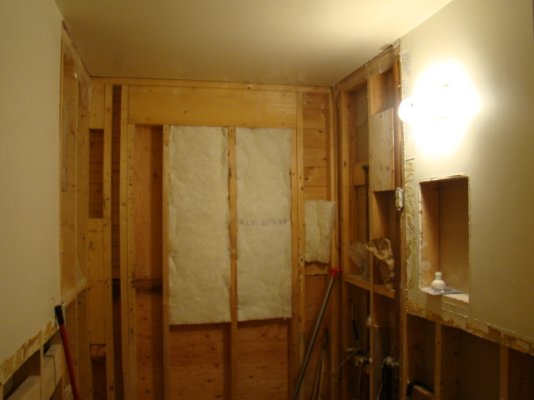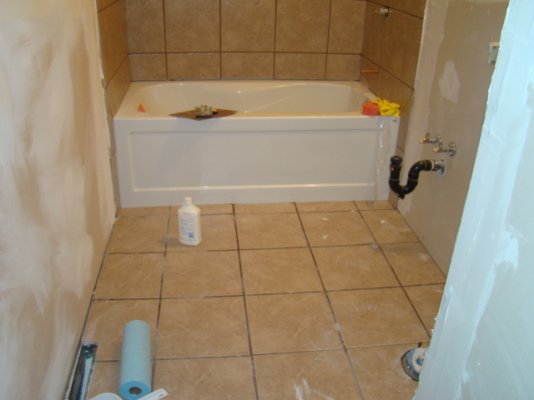kumquat
Thinks s/he gets paid by the post
DD bought a house in Feb. It is in a fairly remote area of northern Canada. I encouraged her to pay an inspector even though the cost was about double that charged in a major urban area (think 2 hours travel each way). IIRC, about $650.
She paid, he did it, no problems found. A few weeks ago, I went up to help her do a bathroom reno. It included new tub, fill in window above tub, new floor and remove tile from walls. Not major, but not minor.
Needless to say, during the reno we found major problems. These included a five foot section of exterior wall that was rotten right through to the aluminum siding, pic follows:
This is what we saw when I removed the aluminum siding from the outside, entire wall rotted away.
Anyhow, I fixed this, but I think a competent inspector should have found it. I've suggested that she send pictures and ask for a refund. I might add that if he doesn't want to make the refund, she just might make the pics available to anyone who asks.
After many hours, the bathroom now looks like this (not quite finished):
I suggested we look at the "home inspection " report. Interestingly enough, it doesn't mention a bathroom on the main floor. I keep wondering if there is a claim (beyond the costs of the flawed inspection where he misses the bathroom problems because he misses the bathroom).
She paid, he did it, no problems found. A few weeks ago, I went up to help her do a bathroom reno. It included new tub, fill in window above tub, new floor and remove tile from walls. Not major, but not minor.
Needless to say, during the reno we found major problems. These included a five foot section of exterior wall that was rotten right through to the aluminum siding, pic follows:
This is what we saw when I removed the aluminum siding from the outside, entire wall rotted away.
Anyhow, I fixed this, but I think a competent inspector should have found it. I've suggested that she send pictures and ask for a refund. I might add that if he doesn't want to make the refund, she just might make the pics available to anyone who asks.
After many hours, the bathroom now looks like this (not quite finished):
I suggested we look at the "home inspection " report. Interestingly enough, it doesn't mention a bathroom on the main floor. I keep wondering if there is a claim (beyond the costs of the flawed inspection where he misses the bathroom problems because he misses the bathroom).



